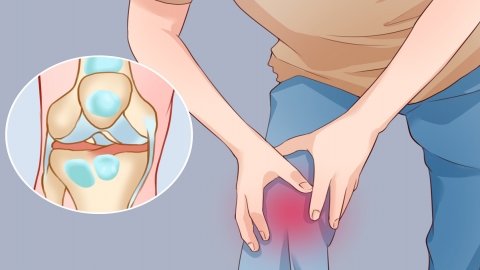Can knee arthritis be cured with corticosteroid injections?
In general, whether intra-articular injections (commonly known as "block injections") can cure patients with knee arthritis mainly depends on the severity of the condition and the effectiveness of the injection treatment. The specific analysis is as follows:

If knee arthritis is in its early stage, with mild inflammation presenting only as occasional pain and swelling, and without obvious joint deformity or cartilage damage, the inflammation may be effectively controlled after a block injection. Symptoms such as pain and swelling significantly improve. With proper joint protection afterward and avoidance of overuse or strain, the joint function can remain stable for a long time—this situation may be considered clinically cured.
However, if knee arthritis is severe, with evident cartilage wear or loss, accompanied by joint deformity or bone spurs, the block injection can only temporarily suppress inflammation and relieve pain. It cannot repair damaged cartilage or restore joint structure. Symptoms are likely to recur shortly after treatment. In such cases, block injections alone cannot cure knee arthritis, and comprehensive interventions such as medication, rehabilitation exercises, or surgery are required.
Block injections must be administered by qualified medical professionals; self-injection should be avoided. Strenuous activity should be avoided shortly after injection to prevent increased joint stress. If symptoms such as redness, swelling, intensified pain, or fever occur after injection, prompt medical attention is necessary. Block injections should not be given too frequently; the number of injections must follow medical advice to avoid further damage to joint cartilage.






